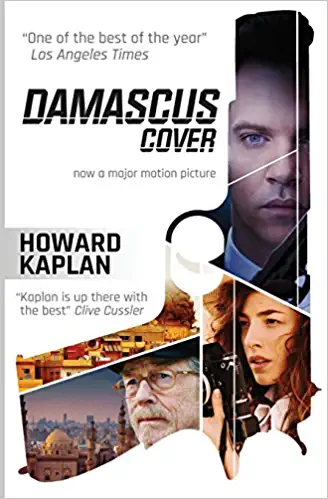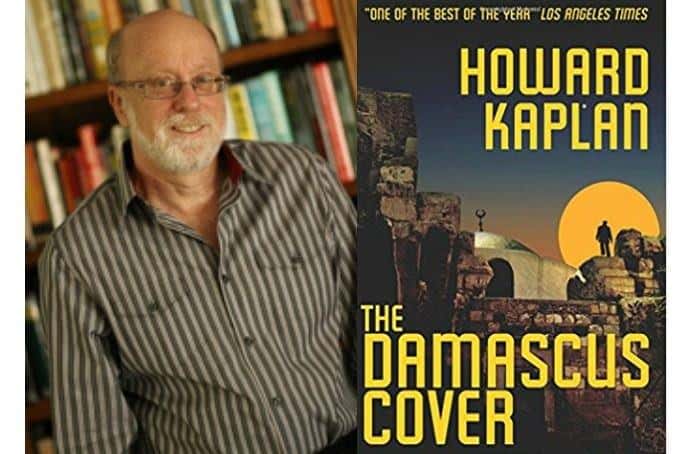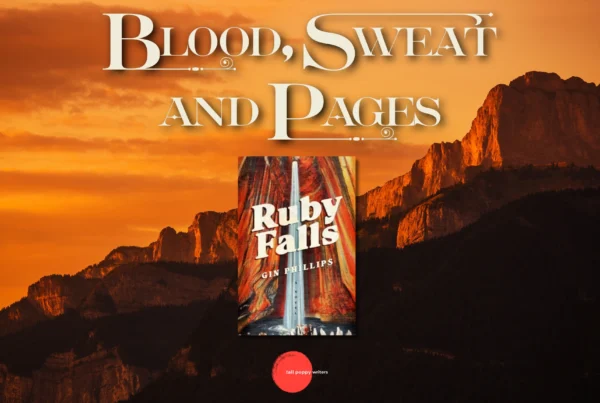The Damascus Cover by Howard Kaplan
Last month, author Howard Kaplan wrote a BookTrib piece about the adaptation of his book, The Damascus Cover, 40 years after its initial release. The book, which had been out of print for decades was recently re-released and is enjoying a renewed success. BookTrib had the opportunity to chat with Howard Kaplan and discuss the book’s endurance over the last 40 years, the journey to the big screen, what inspired him to write the story and how important reconciliation, the theme of his book, is to the world.
BookTrib: The Damascus Cover is the result of a trip you took to Syria in 1971. What about that region made you want to capture it in novel form?
HK: That’s exactly correct. There were two things that made want to write this book. First, – I was already a student at that time – studying abroad from UC Berkeley in Jerusalem, and a friend of mine said, “let’s go see if we can go to the Arab countries to get a view of what’s really going on there,” so we decided to do it. I went to a square in Damascus – Marjeh Square, the main square in Damascus, where an Israeli spy, Eli Cohen, had been hung, publicly, in 1965. This sort of gave me the idea to write my own story about an Israeli spy in Damascus.
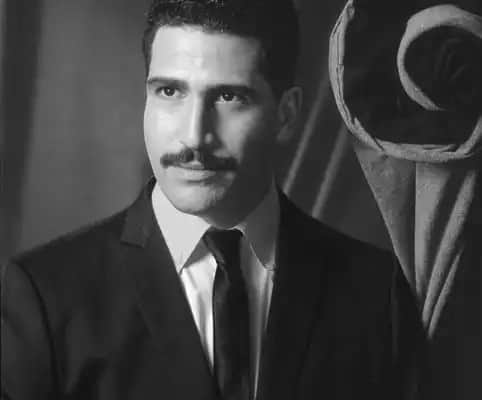
BookTrib: The description of that region in the book, you were able to vividly capture Syria before the civil war. How did you go about doing that?
HK: I did extensive research on the country, and the British explorers kept travel logs that I went through. I contacted the Syrian Ministry of Tourism, and they sent me a huge colored map, and I hung that on my wall, and I used that to have my characters walk around the map.
BookTrib: For someone like myself, who was born after the beginning of the civil war in Syria, what would it have looked like? How would you describe it?
HK: Syria used to have a lot of people – it’s [one of the] oldest inhabited cities on the planet. Damascus is 50 miles from the ocean, in the middle of the desert. But it’s an oasis – you have these underground rivers in Lebanon that come up in Damascus – it’s completely run by rivers. There are glorious fruit trees of everything you can imagine.
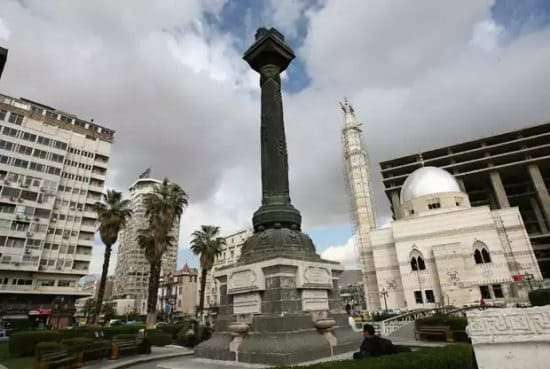
BookTrib: And this is book is a period piece set in that time, a spy novel where a spy is posing as a former Nazi to save a Jewish family in Syria?
HK: Right. An Israeli spy who poses as German salesman in Damascus, which is where the “Damascus cover” comes in. There’s actually a large contingent of former Nazis living in Damascus who had been instrumental in training the Syrian military and intelligence.
BookTrib: With that there are also a lot of twists and turns in the plot – it is a suspense novel – do you think this is what connects with people the most?
HK: There is a big twist at the end, and I didn’t figure this twist out until I was about two-thirds of the way through writing it. No one sees it coming. People expect twists and you look for them in an average spy novel or thriller – this, no one sees coming, and it pulls the whole novel together.
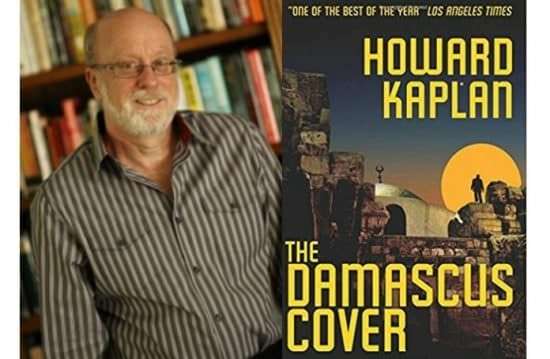 BookTrib: The Damascus Cover sold extremely well when first released. It has an enduring history, and about 10 years ago, director Daniel Berk came to you wanting to option the book for a screenplay. Tell us a bit about how that happened.
BookTrib: The Damascus Cover sold extremely well when first released. It has an enduring history, and about 10 years ago, director Daniel Berk came to you wanting to option the book for a screenplay. Tell us a bit about how that happened.
HK: It’s one of the good unusual things in life – in the midst of many unusual things good and bad. It turned out that the director had made a few films and was looking to do a film specifically in the Middle East. I think that he expected to get Israeli financing, but got British and American financing instead. He mentioned doing a movie in the Middle East to his friend, who happens to be a friend of mine. She had a copy of the book on her bookshelf, and he read it. Later, she called me up and said there was a director interested in making it into a film. We met for coffee, and he decided he wanted to do it. It took him a while to get the funding, but he did and now it’s a film.
BookTrib: I’ve known people who have worked to turn books into film. How difficult is it to get financing for a feature film and what is the time frame it takes to go from screenplay to actual film?
HK: There are certainly stories of the process taking a long time. Matthew McConaughey’s movie, Free State, took 10 to 15 years to get off the ground. It only works when there are people with perseverance who believe in the project. For a good film, maybe five years though, on average. Because, you can hire actors and use the money to invest in that part, but you need a decent script. To make it work, a good script is helpful.
BookTrib: Is the movie now in post-production?
HK: The movie is completed, starring Jonathan Rhys Meyers, and it’s one of [actor] John Hurt’s last performances, and it also stars Olivia Thirlby. Olivia was in Juno as the sidekick, and in the Amazon series Goliath. John Hurt has since passed away. Jonathan Rhys Meyers is a very passionate actor and he did a fabulous job.
BookTrib: Did you have any final approval of the script or the cast or any input in the film?
HK: I had no say in the actual script, itself. I was just someone that they came to when they had questions and with certain things that they wanted to do.
BookTrib: The Damascus Cover has recently been reprinted and re-released. What has the response been like from people who only see Syria as it is now in the news, not like it was when you saw it over 40 years ago?
HK: The ‘new world’ is customer reviews, which you can see on Amazon.com. It’s doing very well in customer reviews. The book held its timelessness on two accounts. First, it’s a good story, and a good story will always work over time. I think that, and the fact that I portray the Middle East in a different way than we’re used to seeing it – with reconciliation. Without reconciliation, everything is just going to deteriorate further, and I think that message is even more timely today, than it was 40 years ago. It’s true for Israel, and true for Iran; if we don’t find a way to live with people, it will end in catastrophe. The book really highlights the need for reconciliation.
BookTrib: I have one final question. After people finish reading this book, what’s the one thing you want them to take from it?
HK: I think that what I said before, that there is an urgent need not to see the people as “other,” or to demonize people. For Syria, Iran and Iraq, the regimes may be difficult, but if we don’t join with each other as people, the regimes are going to destroy everybody.
The Damascus Cover is due for release in 2017. For more information and to view other works by Howard Kaplan, visit his author website, and his Amazon page.
Buy this Book!
Amazon